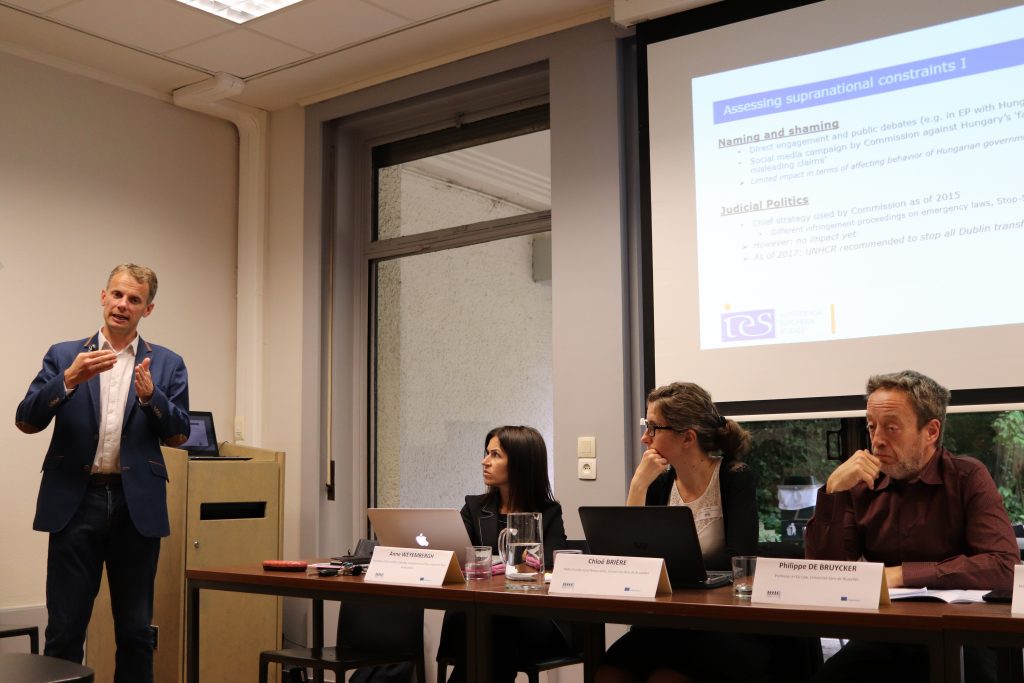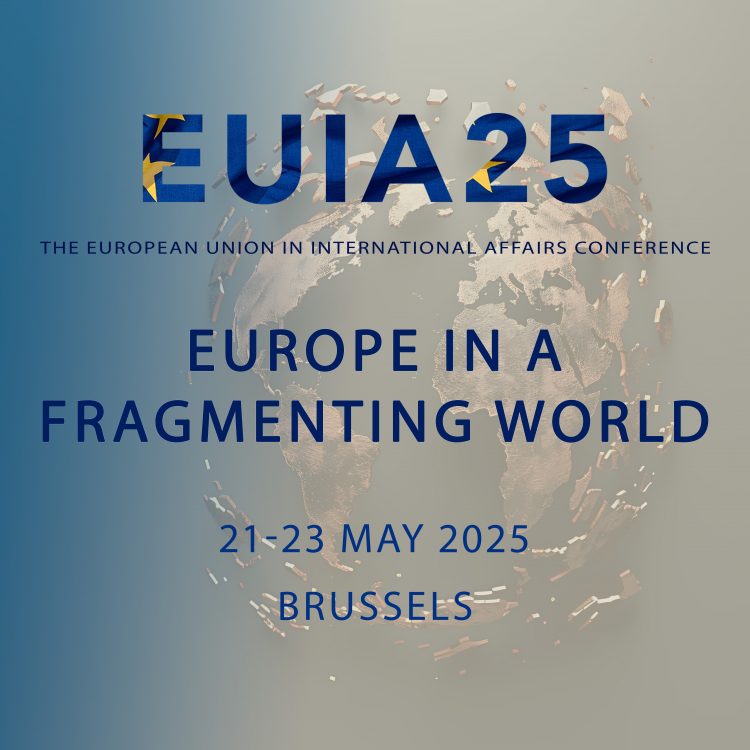Chaired by Prof. Philippe De Bruycker (CDE-ULB), the panel focused on solidarity in relation to migration – an issue central to both national debates and negotiations on the EU level. It was noted that while the principle of solidarity should govern EU policies on border checks, migration and asylum, putting this principle into practice faces different hurdles. Member states may attempt to dilute supranational decision-making and influence, and a legal grey area between the notions of ‘humanitarian assistance’ and ‘migrant smuggling’ has led to the prosecution of private actors showing solidarity towards migrants.
The #EUEA19 conference, organized by the Institute for European Studies of the ULB in collaboration with the VUB and the University of Warwick, is part of its Jean Monnet Centre of Excellence project. This year’s edition focused on European Solidarity.
Attempts to ‘renationalize’ EU policy making on migration
Prof. Florian Trauner (IES-VUB) took the floor first, to present strategies that state actors may use in order to keep decision making on the national level. This ‘renationalization’ aims to increase the member states’ room to manoeuvre vis-à-vis the policies of the EU. By eliminating, changing and ignoring supranational legal constraints, or avoiding altogether the creation of new regulations, national governments can try to push their own agenda on different policy areas, including migration and asylum.
Taking Hungary as an example, Prof. Trauner recounted how the country’s government has successfully ignored EU laws in the wake of the 2015 crisis that saw 177.000 migrants applying for asylum in Hungary. The EU has reacted both on the public sphere with ‘naming and shaming’, and through more formal channels with infringement and sanctions proceedings. However, these tools have so far proven too weak to have a significant impact on the country’s anti-migration agenda.
Need for decriminalisation of humanitarian assistance in migration
Prof. Anne Weyembergh (IEE-ULB) and Dr. Chloé Briere (CDE-ULB) focused on assistance from individuals towards migrants, a dimension of solidarity less addressed by legislators and scholars despite increased media attention over the last few years. The topic they raised was how the presence of humanitarian reasons affects the prosecution and convictions following from assistance to illegal entry, transit or stay of migrants in the EU area. The answers vary.
On EU-level, the so-called “Facilitators Package” gives member states the option to not impose sanctions in cases where help to migrants is offered for humanitarian reasons. However, the optional nature of this exemption has led to a lack of clarity and coherence in legal frameworks across member states. This uncertainty in turn may affect individuals’ readiness to show solidarity to migrants, even in life-threatening situations such as sailors offering help to people stranded at sea.
What way forward for solidarity towards migrants?
How to facilitate the translation of the notion of solidarity on EU level to national policies and practices promoting assistance to migrants in need? While looking at different examples, the two presentations showed that there is still some way to go before a shared and implementable vision of solidarity can be achieved. During the ensuing discussions, the idea of a complimentary rather than a common European policy narrative towards national migration policies was introduced. Rather than try to force the hand of member states pursuing renationalisation of decision making, the EU should aim to frame its policies in such a way that the migration goals set can be achieved.
Prof. Weyembergh and Dr. Briere’s recommendation was to launch a large-scale data collection on prosecutions and convictions to see how the current legal framework affects those providing assistance to migrants. They also identified the need to clarify the distinction between migrant smuggling and facilitation of illegal entry, transit and stay. Some flexibility and margin of appreciation needs to be left to the national authorities to identify behaviour to be covered, but at a minimum the EU should ensure that member states provide non-prosecution in cases where assistance is based on humanitarian reasons.




